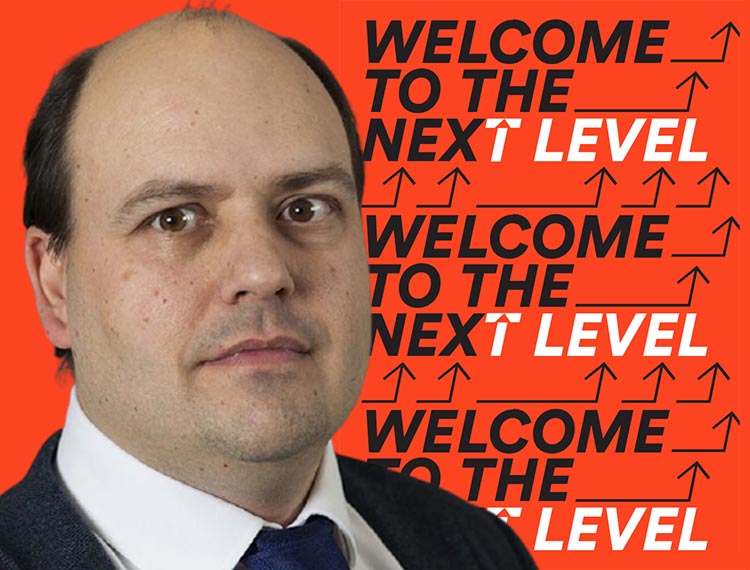Celebrating T Levels one year on

Last September the first students enrolled on the government’s new flagship qualification, the #TLevel.
What have the past 12 months delivered for these students and their teachers and future employers?
It is probably fair to say that if given a list of times to not launch a new major qualification, during an international pandemic is quite high on anyone’s list.
With that in mind, it is wonderful to be able to say that the past year has, in the main, brought positive news and experiences for everyone involved in terms of T Level roll-out.
The first wave of T Levels launched in 2020, taught by a small group of colleges and schools, with more being rolled out in 2021, 2022 and 2023. Unlike previous qualifications, these are delivered strictly by one awarding organisation per route, as a mechanism for maintaining close control over standards and content. By the time these young people complete their studies next summer, there will be a significant proportion of the FE landscape delivering T Levels, and they will be open to all for delivery from 2023.
Rolling out a new qualification is challenging at the best of times, but there have been new local arrangements providers have had to cope with, sudden changes of plans, a shift to teacher assessed grades for the elements of T Levels completed in the first year of study, and employers almost universally moving to models of home working, which has affected work placements. These could all have caused enormous challenges for T Levels as they took their first tentative steps in the public consciousness.
We are now halfway through the first cohorts in Education and Childcare, Digital, Construction, and Health and Science – they have a year to go. As the next year group starts their studies – a larger group covering even more industries and occupations – we still don’t know for certain how successful these trailblazing young people will be.
What we can be sure of at this stage is that they have shown themselves up to the task, and their teachers and providers have equally shown themselves more than able to make these demanding programmes a dynamic and relevant learning experience.
Everyone involved should take a moment to celebrate their achievements before they get their heads back down to finish their journey. The unique circumstances of the past year (or two) mean that it is difficult for any impartial observer to fully analyse just how successful the T Level has been and will be in the coming years.
It is true that if you work your way through each aspect of the qualification and how it functions you may well find places where, as we move from the drawing board to the real world, some changes might be wise.
Some of these will be almost imperceptible, tightening up on certain regulations. It is likely that the granular detail of funding arrangements, for example, will move, an eternal part of the management of the FE landscape. Others might require changes which at the time feel considerable, headline grabbing shifts in some way.
The enormous shift in ways of working has for now been resisted in terms of offering remote industry placements within T Levels, but for how long will this be sustainable? What regulations might be put in place to both help young people ‘learn through working’ which arguably does involve, at least in part, attending a ‘place of work’ and help employers who have in some industries committed to vast reductions in office footprint for example?
However, the truth is that the qualification is well embedded now in the FE sector and being well received by those teaching and studying the new curriculum. It is understood and accepted almost universally by employers and universities, and any such changes are not about ‘fixing’ a failed or broken qualification. They are about the inevitable and essential tweaks necessary in any success story to make things work for the long term.
Some of the changes to our wider society after the pandemic will doubtless affect how we teach and run the T Level. The previous discussion of England’s widespread long term adoption of remote working is a prime example, but also there may be long term shifts within our economy which had already been accelerated by Brexit that are now pressing.
What will the rise in our plans to build a green recovery mean – there is scope for T Level teaching in any number of environmental related industries already in many routes and T Levels, but will we see a dedicated suite of new T Levels becoming necessary?
Conversely, could the much reported considerations of digital poverty amongst sections of our learners and workforce lead to a need for even more support to help T Level learners access the opportunities they deserve?
However, what we have is a wonderful opportunity now to press on with an ambitious and important agenda to put technical education on an equal footing with the most demanding academic qualifications.
We need this for our economy, but also, much more importantly for those involved, we need this change for the future life chances of so many of our young people.
Based on what we have seen in this first year, we might, at last, be getting just what the FE sector needs.
Paul Kessell-Holland is National Head of Curriculum Design Projects at the Education and Training Foundation (ETF)
Getting ready for T Level delivery
The ETF’s T Level Professional Development offer supports practitioners involved in the planning or delivering of T Levels.











Responses